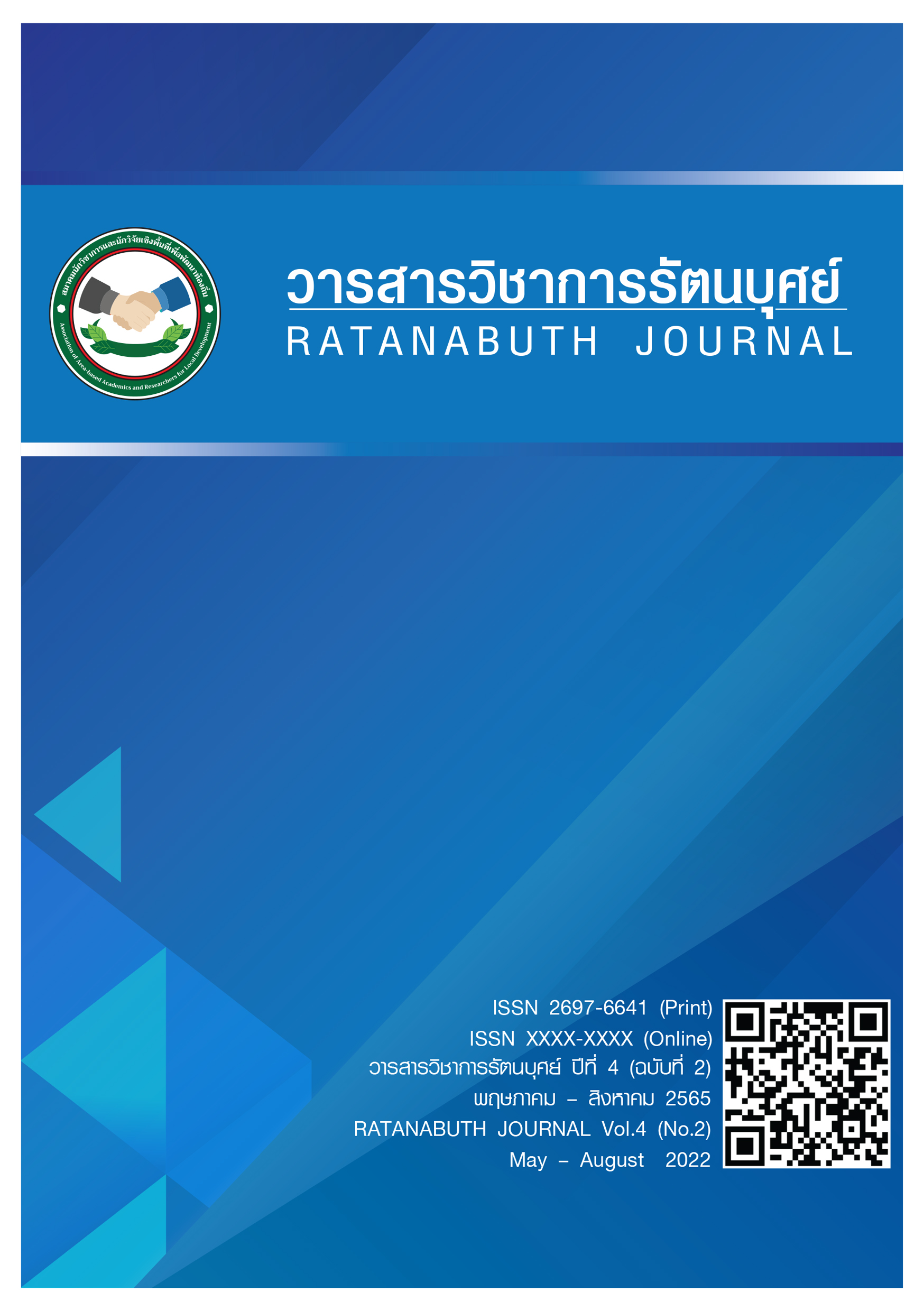Democracy can be eaten according to Buddhist political science : social change dimension Democracy can be eaten according to Buddhist political science : social change dimension
Main Article Content
Abstract
This article aims 1) to study democracy. through the perspective of analytical thinking and expression as behavior; 2) to study the principles of Buddhist democratic governance that contribute to peace, peace and fraternity in society; and 3) to promote social change in a democratic regime according to Buddhist political science. Incidentally Buddhist dharma principles can be applied to governing such as the principle of the Dharma. It is fair for the rulers who are kings. And the principle of morality It is a principle for a ruler who governs a democratic system, for example. But the best government that the Lord Buddha praised is the rule of law or monarchy.
Democracy can be eaten according to Buddhist political science. Want parents and those under the ruler must have virtues together for the prosperity of society nation and world which the present democracy focus on quantitative criteria such as election campaigns and the votes they get. These are democratic decisions. The principle that democracy requires freedom, equality and fraternity is just the ideal. Because if it is to be a true democracy the foundation of individual wisdom must be developed. To have morals and ethics that is to say, it must be developed to be able to bring it to the level of dharmadhipa-tai. Therefore, it will be the correct governance according to the ideal of the rule of Buddhism.
Therefore, the current and future social changes are more likely in the direction of us to direct change. Social thinkers and scientists have sought to propose a model for studying social change by collecting data that we can prove and experience that enables us to understand the causes and relationships between the factors that appear in human society
Article Details

This work is licensed under a Creative Commons Attribution-NonCommercial-NoDerivatives 4.0 International License.
References
กมล ทองธรรมชาติ.(2521).การปกครองและการเมืองไทย. กรุงเทพมหานคร : โรงพิมพ์ไทยวัฒนาพานิช.
โกวิท วงศ์สุรวัฒน์.(2534).รัฐศาสตร์กับการเมือง.กรุงเทพมหานคร : สำนักพิมพ์ตะเกียง.
ชัยอนันต์ สมุทวนิช.(2523).ประชาธิปไตยสังคมนิยมคอมมิวนิสต์กับการเมืองไทย. กรุงเทพ มหานคร : บรรณกิจ.
พระธรรมปิฎก (ป.อ. ปยุตฺโต).(2543).พจนานุกรมพุทธศาสตร์ ฉบับประมวลธรรม.พิมพ์ครั้งที่ 9.กรุงเทพมหานคร : มหาจุฬาลงกรณราชวิทยาลัย.
พระพรหมคุณากรณ์ (ป. อ. ปยุตฺโต).(2565). พระพุทธศาสนากับประชาธิปไตย.10 มิถุนายน 2565.จาก : http://oldweb.mcu.ac.th/mcutrai/menu2/Critical/03.htm.
พระพรหมคุณาภรณ์ (ป.อ ปยุตโต).(2535). การสร้างสรรค์ประชาธิปไตย. กรุงเทพมหานคร : สำนักพิมพ์มหาจุฬาลงกรณ์ราชวิทยาลัย.
พิมพิลัย หงษาคำ.(2565). ประชาธิปไตยในพระพุทธศาสนา.10 กรกฎาคม 2565.จาก : https://sites.google.com/site/fon5481136057/hnwy-thi-1/1-1.
มหามกุฏราชวิทยาลัย.(2525).พระไตรปิฎก. กรุงเทพมหานคร : โรงพิมพ์มหามกุฏราชวิทยาลัย.
สามารถ มังสัง.(2565). อธิปไตย 3 ประการ : ต้นแบบของการปกครอง.10 กรกฎาคม 2565.จาก : https://mgronline.com/daily/detail/9620000038979
สุขุม นวลสกุล และวิศิษฐ์ ทวีเศรษฐ.(2523).การเมืองและการปกครองไทย. กรุงเทพมหานคร : ห้างหุ้นส่วนจำกัดโรงพิมพ์ชวนพิมพ์.
สุชีพ ปุญญานุภาพ.(2528).คุณลักษณะพิเศษแห่งพระพุทธศาสนา.กรุงเทพมหานคร : สำนักงานเสริมสร้างเอกลักษณ์ของชาติ สำนักงานเลขาธิการนายกรัฐมนตรี.
Lewis Copeland and Lawrence Lamm eds. (1985). The World’s Great Speeches. (2nd ed.) New York: Dover.


